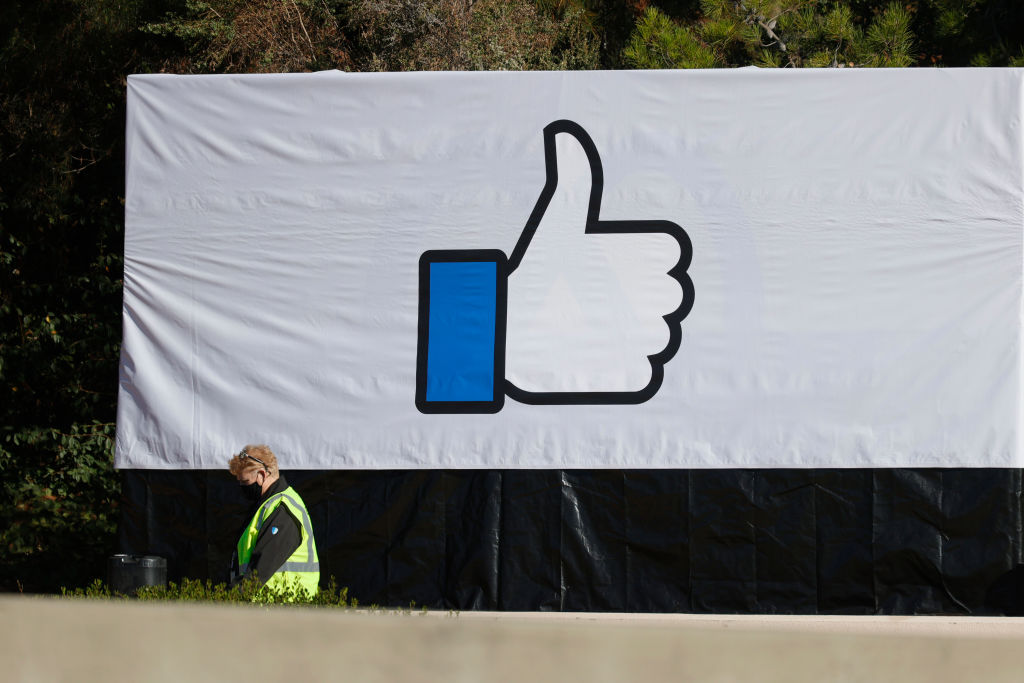Facebook negatively impacts sleep, work, relationships for about 1 in 8 users, documents show


A free daily email with the biggest news stories of the day – and the best features from TheWeek.com
You are now subscribed
Your newsletter sign-up was successful
Internal Facebook researchers have found that issues of addiction-like problematic use affect about 12.5 percent — or every 1 in 8 — of the app's 2.9 billion users, amounting to more than 360 million people, The Wall Street Journal reports. Such compulsive social media abuse is then said to harm users' sleep, work, parenting, or relationships.
What's more, these usage patterns — which "mirror what is popularly known as internet addiction" — were "perceived by users to be worse on Facebook than any other major social media platform," writes the Journal. Researchers estimated approximately 10 percent of U.S. users (one of Facebook's "most lucrative markets") engage in this behavior, while about 25 percent of users are doing the same in the Philippines and India, the "company's largest market."
The news arrives as part of the Journal's Facebook Files series, a trove of reporting proving Facebook understands the harm it causes and fails to act on it.
The Week
Escape your echo chamber. Get the facts behind the news, plus analysis from multiple perspectives.

Sign up for The Week's Free Newsletters
From our morning news briefing to a weekly Good News Newsletter, get the best of The Week delivered directly to your inbox.
From our morning news briefing to a weekly Good News Newsletter, get the best of The Week delivered directly to your inbox.
A Facebook user well-being team that had suggested certain fixes (some of which were implemented) to help deescalate the situation was shut down in late 2019; a company spokesperson told the Journal Facebook is still "dedicated" to solving the problem.
Notably, researchers said they didn't think the results of their analysis could determine causality — for instance, is Facebook causing sleep problems, or do those who have trouble sleeping for whatever reason just end up turning to Facebook? Brian Primack, a public health professor at the University of Arkansas, however, does believe all the evidence to be "pointing in a certain direction."
"There's only going to be a certain amount of time Facebook can say there is nothing causal out there," Primack said. Read more at The Wall Street Journal.
A free daily email with the biggest news stories of the day – and the best features from TheWeek.com
Brigid Kennedy worked at The Week from 2021 to 2023 as a staff writer, junior editor and then story editor, with an interest in U.S. politics, the economy and the music industry.
-
 Bonfire of the Murdochs: an ‘utterly gripping’ book
Bonfire of the Murdochs: an ‘utterly gripping’ bookThe Week Recommends Gabriel Sherman examines Rupert Murdoch’s ‘war of succession’ over his media empire
-
 Gwen John: Strange Beauties – a ‘superb’ retrospective
Gwen John: Strange Beauties – a ‘superb’ retrospectiveThe Week Recommends ‘Daunting’ show at the National Museum Cardiff plunges viewers into the Welsh artist’s ‘spiritual, austere existence’
-
 Should the EU and UK join Trump’s board of peace?
Should the EU and UK join Trump’s board of peace?Today's Big Question After rushing to praise the initiative European leaders are now alarmed
-
 Is social media over?
Is social media over?Today’s Big Question We may look back on 2025 as the moment social media jumped the shark
-
 Australia’s teen social media ban takes effect
Australia’s teen social media ban takes effectSpeed Read Kids under age 16 are now barred from platforms including YouTube, TikTok, Instagram, Facebook, Snapchat and Reddit
-
 Google avoids the worst in antitrust ruling
Google avoids the worst in antitrust rulingSpeed Read A federal judge rejected the government's request to break up Google
-
 Supreme Court allows social media age check law
Supreme Court allows social media age check lawSpeed Read The court refused to intervene in a decision that affirmed a Mississippi law requiring social media users to verify their ages
-
 Nvidia hits $4 trillion milestone
Nvidia hits $4 trillion milestoneSpeed Read The success of the chipmaker has been buoyed by demand for artificial intelligence
-
 X CEO Yaccarino quits after two years
X CEO Yaccarino quits after two yearsSpeed Read Elon Musk hired Linda Yaccarino to run X in 2023
-
 Musk chatbot Grok praises Hitler on X
Musk chatbot Grok praises Hitler on XSpeed Read Grok made antisemitic comments and referred to itself as 'MechaHitler'
-
 Disney, Universal sue AI firm over 'plagiarism'
Disney, Universal sue AI firm over 'plagiarism'Speed Read The studios say that Midjourney copied characters from their most famous franchises
